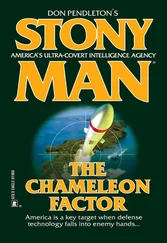I knew what she was thinking. “I can borrow money against my house. Then sell the boat when we get to Canada and pay off the loan.” It sounded risky, but damn, what an adventure! Besides, the losses couldn’t be that great. Anna’s testimony might even be useful in the fight against Menchikovskaya if we or the syndicate still existed by the time we got there. I wasn’t sure what damage she could inflict on them, but it had to be better than nothing. Spreadsheets on the laptop proved I could carry the half-million dollar line of credit for a few months, and realistically, what were the chances I would run it all the way up anyhow?
* * *
The next morning we were up and out before the sun got dangerous. It’s how we uncovered the mystery of the world’s biggest — and worst — gamelan orchestra. Frenetically clanging bells happened to be ropes, randomly animated by a breeze, slapping hundreds of hollow aluminum sailboat masts. Following the canal, heading for the waterfront, Anna and I saw a disproportionate number of marine outfitter stores occupying the old Greek, stone buildings. This town, or the part of it in which we found ourselves, was entirely about yachting .
Everything I knew about yachting came from day-sailing with friends on a twenty six foot sailboat in protected waters. To that hands-on experience, I gleaned what I could from a paperback expose of solo round-the-world yacht racing. Before fortuitously finding that paperback, I considered a yacht to be big motorboat owned by someone like Thurston Howell The Third, and upon which martinis and three-hour tours were de rigueur. A sailboat was, well, just a sailboat.
From Google I’d hand scrawled a map of yacht brokerages. We followed it to a square stone building, probably hundreds of years old, festooned with several immense Persian rugs. Just under the eaves GULET YACHT BROKERAGE had been painted in bold lettering. Between the building and the sidewalk a dozen or more rugs were laid out and draped over sawhorses. It didn’t take more than a few seconds for a well-dressed Turkish man to hurry right for us. “Yes, please. Finest rugs, best deals for you today. And, where are you from?”
I stifled a petulant impulse to answer in Russian. “Yes, lovely rugs, but I’m looking for a yacht brokerage.”
Anna forced a smile. She had no idea what to make of the exchange.
“Then, my friends, you have come to the right place. Please do follow me.”
“You sell boats and rugs?”
“Indeed, finest boats and truly exquisite rugs… As I am sure you can see.” A sweeping hand gesture encompassed his rugs with a flourish. He bowed elegantly.
Anna held back. “You go, I will stay here and take some pictures. The rugs and buildings are quite something. I wish to take pictures of flowers, buildings, this place.”
“Ah, I see your friend knows true beauty, and quality! Only the finest will do for this young lady, yes?”
Anna’s jaw dropped.
Sensing he’d lost Anna, the Turk carried right on with me. “You, my friend, shall see my brother about boats and then I will show you the most exquisite rugs in all of Christendom.”
Christendom? I thought.
He clicked his heels, bowed to Anna, and snapped around. I followed him into the building and up narrow stone stairs worn like hammocks. His brother’s lair was a single room taking up the entire second floor. It consisted of dark, massive wood-plank flooring, plaster over rock walls, and open beams and trusses. The rug seller’s brother got up from a desk placed precisely between two symmetrical windows, and introduced himself. Through the open windows, a breeze off the water was starting to stir air that felt as though it was ready to ignite. I learned that a gulet is a large traditional wooden boat with masts and sails, and in modern times, a motor. Looking like 16th-century sailing ships, gulets are prized in the Aegean and Eastern Mediterranean as charter vessels. The broker pointed through his window to the historic seawall. Dozens of meticulously maintained gulets were tied up, gangplanks down, waiting for customers. Although stunningly beautiful, they were far more boat than I could handle physically or financially.
“Do any of these carpets fly?” I joked to the main floor brother on my way down the stairs. He didn’t get it, but tried his best to assure me that he would take care of the shipping and even the customs clearance formalities for my new rug.
* * *
Omar’s Yacht Sales looked far more likely to offer a solution to someone needing do-it-yourself transportation to the other side of the planet. The brokerage’s building wasn’t clad with rugs and was located in the heart of that huge gamelan marina. I wandered in, looking like a tourist, and asked about, “Something one can cross oceans in.” It was an easy guess the dark eyed, gorgeous receptionist thought I couldn’t be serious. To her credit, she set me up with an impeccably well dressed young man who looked like he’d never sold anything in his life, let alone a yacht.
The Turkish man, early twenties, slight, and terribly nervous, introduced himself as Erdem. He started right in. “Madam, what type of yacht did you have in mind?” Then the same sort of questions Alexi had asked in Odessa: power, sail, price. He didn’t refer to a computer or a website, though. He just listened to my answers: “Probably a sailboat. We need to get to Canada and a motorboat won’t have the range… Am I right?” Money came down to, “As little as possible,” and size and type was, “Whatever two people can reasonably handle over long distances.”
Erdem considered my criteria then pulled one of many large binders from a shelving unit. In it were pages and pages of sailboat listings. Some looked like bigger versions of the sailboat I raced around buoys back in Vancouver; some resembled oversized bathtubs with masts, and a disturbingly large number of them looked like set pieces from the Costner flick, Waterworld.
Day three in Marmaris and the clock was ticking.
Out in front of the apartment-hotel, I cowered from the sun in a sliver of shadow. Barely 9:00 am and the heat was relentless. The only clothes we had were what we wore leaving Odessa. I was sweating in a turtleneck, dark slacks and the same heavy boots I’d kicked at doors with in Kiev. Anna had taken a knife to her jeans, making crude but oh-so-stylish cut-offs.
Erdem, the youthful yacht broker I’d met the day before at the gamelan marina, pulled up in a late model, compact sedan the color of old nylons. Disintegrating pavement crunched under his dress shoes when he got out to greet us. I didn’t know anyone in Marmaris could possibly be dressed warmer than me, but Erdem was. I figured he was mere seconds from heatstroke in his three-piece suit and tie. He hadn’t a trace of perspiration, and the windows of his sedan were rolled down. Meaning: no air conditioning. It was downright spooky.
Miles of tooth-loosening road, mortised into near-vertical rock faces, led to an aerial view of an isthmus far below. Erdem double clutched, geared down, and the car pitched forward into a steep dive. Approaching the isthmus, haphazard white rows of objects resolved into a myriad of boats lined up like enormous tombstones.
“Ookh-tee!” Anna said from the backseat. “All of those white things are boats? Sure is a lot of them!”
“There is where we are going, dry storage.” Erdem pulled one hand off the wheel to point. “My uncle Omar has many boats there. Bad charter season he says, this year very bad, indeed.”
“You have an uncle in the charter business?” I asked.
“Not anymore. Now he is in the brokerage business. He says selling boats is better than sailing them.” Erdem grinned at his play on words.
Читать дальше












